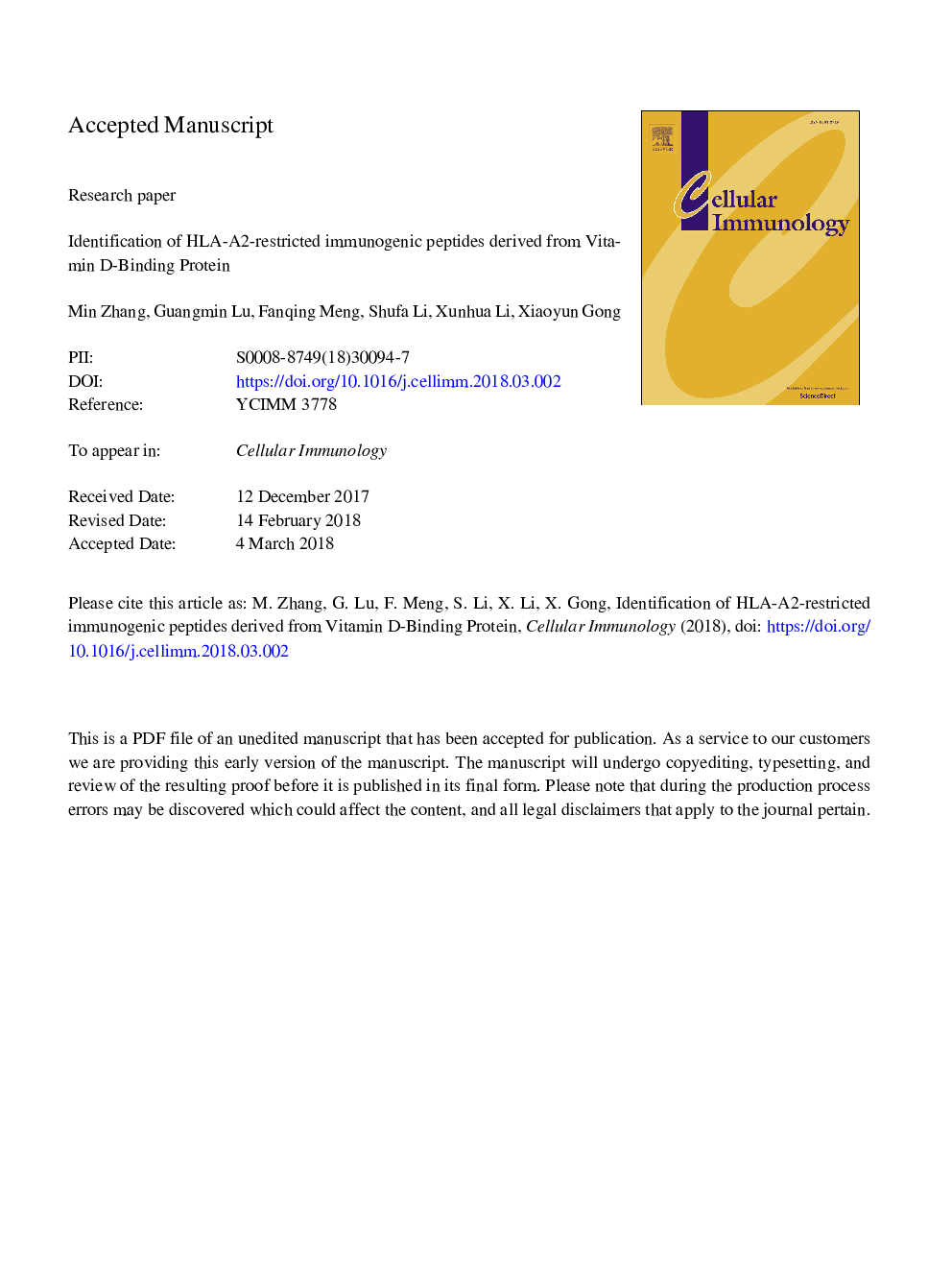| Article ID | Journal | Published Year | Pages | File Type |
|---|---|---|---|---|
| 8463545 | Cellular Immunology | 2018 | 30 Pages |
Abstract
T-cell-mediated destruction of pancreatic β cells leads to Type 1 diabetes (TID). Vitamin D-Binding Protein (VDBP) has been identified as an autoantigen and T cell reactivity against VDBP increases in the development of T1D. Autoreactive cytotoxic T lymphocytes (CTLs) recognize β-cell-derived peptides in the context of major histocompatibility complex class I molecules. However, little is known about the VDBP-derived immunogenic peptides that are presented in the context of human HLA molecules. Here, we predicted and identified VDBP derived immunogenic peptides that were presented in association with human HLA-A2 molecule. The VDBP derived peptides binding to HLA-Aâ0201 were predicted by using a computer-assisted algorithm. The candidate peptides were synthesized, then affinity between peptides and HLA-Aâ0201 were analyzed. In addition, the CTL activity of the peptides was detected by cytotoxicity assay and ELISPOT assay in vitro. Furthermore, HLA-Aâ0201-transgenic mice were immunized with peptides to induce the CTL activity in vivo. The results demonstrated that peptides of VDBP containing residues 211-219 and 235-243 had high affinity with HLA-Aâ0201. In addition, these peptides elicited potent CTL responses in vitro, and induced T1D in vivo. Therefore, this experiment identified immunogenic HLA-Aâ0201-restricted epitopes derived from VDBP, and provided pathogenesis theory of T1D.
Related Topics
Life Sciences
Biochemistry, Genetics and Molecular Biology
Cell Biology
Authors
Min Zhang, Guangmin Lu, Fanqing Meng, Shufa Li, Xunhua Li, Xiaoyun Gong,
